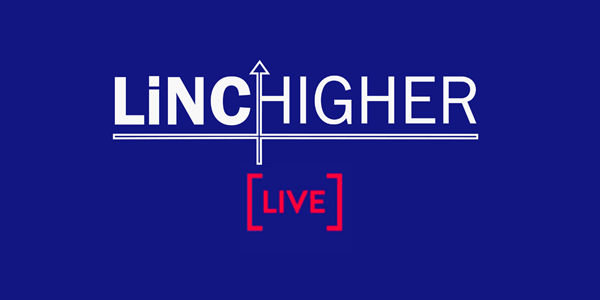Student Finance: What is it & how do I apply?
Paying for University or College
The cost of Higher Education can be concerning for students and parents in thinking that you can't afford to go to university or college. But don't dismiss the idea because of this. Find out the facts and you will see that it is more affordable than you might think, and is a real investment in you and your future.
The following section aims to give you the information you need about student fees and loans, and breaks down some of the myths about Higher Education finances.
The good news is that student loan repayments are based on what graduates can afford to pay rather than the amount they borrow, and students don’t have to pay anything back until they have finished their degree and are earning over a certain amount.
Tuition Fees
This is the cost of the course itself – for example teaching time and library/computer facilities.
- Students have to pay their own fees, but they can get a loan to cover the cost.
- Universities can charge up to £9,250 per year (frozen at this cost until 2025)
This loan is not means-tested – which means the amount you receive doesn’t depend on your household income.
Maintenance Loan
- You will also need to pay for things like accommodation, food, transport and socialising.
- You can apply for a maintenance loan to help towards these costs.
- The amount you can borrow will depend on various factors, including where you will be studying and your household income.
Who provides student loans?
Student loans are provided by the Student Loans Company (SLC). SLC is a non-profit making, government-owned organisation. For students living in England, applications for a student loan are made through Student Finance England.
The most current and up to date advice can be found on the SLC website:
You can read more about the changes to 2023/24 loans here
Repaying your student loan
For both types of loan, you will only have to start making repayments:
- After you have finished your degree.
- When you are earning a salary over a certain amount. The threshold for repayments on Plan 2 loans change on the 6th April every year. See the student finance website for accurate details.
The tuition fee and maintenance loans are linked to keep repayments simple, and are paid back directly from graduates’ salaries.
Your loan repayments will be automatically deducted from your earnings in the same way as income tax.
There’s more information about repaying student loans on the Student Loans Company website, www.slc.co.uk/repayment
Student Loan Interest
Whilst you are still studying, the interest on your loan will be inflation plus 3%. After you have finished the course, you will pay a rate of interest based on the UK Retail Price Index (RPI) and your current level of income.
Find Out more
GOV.UK www.gov.uk/repaying-your-student-loan/what-you-pay
Student Loans Company http://media.slc.co.uk/repayment/qsg
How do I apply for a student loan?
You can apply for your tuition fee and maintenance loans online at www.gov.uk/student-finance. You should do this as early as possible, as it can take up to six weeks to process your application. You don’t need to wait to receive offers from universities before applying. For more guidance and application deadlines visit www.gov.uk/apply-for-student-finance
Most of the process is done online, however you may need to send proof of identity through the post, and will have to print, sign and return a declaration form. You will then receive a letter confirming how much you can borrow.
Once you have registered at university, the tuition fee will be paid straight to the university. The maintenance loan will be paid into your bank account at the start of each term.
When parent/carers need to be involved
If you want to apply for the maximum amount of maintenance loan, you will need to ask your parent/carer for information about your household’s taxable income, in order to include it in your student loan application.
Once your forms have been submitted, your parent/carer may be asked to provide their proof of earnings – for example their P60 or Self-Assessment tax return, and their National Insurance number. They will also be asked for evidence of any taxable state benefits, pensions or any investment income. This is just part of the checking process so there’s no need for you or your parent/carer to worry.
HM Revenue and Customs (HMRC) will then check the information that has been submitted against their records.
Student Finance England will write to you when all of your information has been confirmed.
For children coming from care, please read our guide on how to apply for your student finance.
If you have no contact with your parents/guardians, you can apply for student finance as an estranged student.
Student Finance England - Estranged
Find out more about the process and what you need to provide
GOV.UK www.gov.uk/support-child-or-partnersstudent-finance-application
Which? University https://university.which.co.uk/advice/advicefor-parents/expert-advice-for-parentsstudent-finance
You can also use a Student Loan Calculator.
Save the Student - Useful Tools
Good to know...
Parent and Carer Information
Notice for parents
It’s not recommended that you take out a personal loan to help your child; this is almost always a more expensive option than your son or daughter taking out a student loan. Interest rates on student loans are still very low in comparison with other loans on the market.
Plus, student loans expire after 30 years, and 60% of students will never pay all of this back.
When your child is applying to Student Finance, you don’t have to submit information about your household income. All students are eligible for a basic rate of maintenance support, regardless of household income; this is based on where students live and study. However, if you do submit this information and you're classed as a low income household, your child will probably be eligible for more (which can make a big difference).
If your household income changes while your child is applying for student finance or once they get to university, it's best to let Student Finance England know so they can reassess you if necessary. If your household income has dropped by 15% or more since the last tax year you can complete a Current Year Income (CYI) assessment form. By completing this form Student Finance England can reassess a students’ application and could mean they are eligible for more funding.
Finally, are you responsible for your child's loan? NO. Once your child graduates and is earning above the threshold, their loan will be automatically collected through PAYE (a bit like income tax). No cheques and no direct debits needed, meaning it’s therefore virtually impossible for them to fall behind on repayments.










